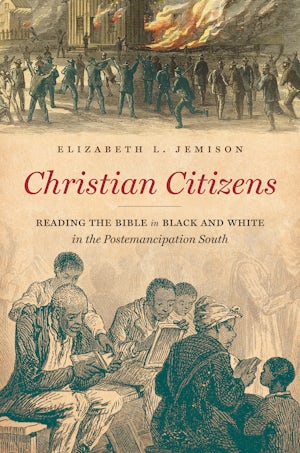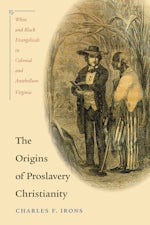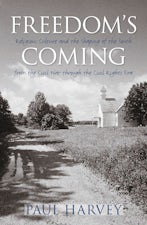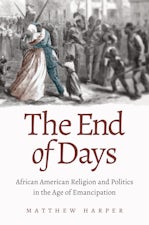Christian Citizens
Reading the Bible in Black and White in the Postemancipation South
By Elizabeth L. Jemison
242 pp., 6.125 x 9.25, 1 map, notes, bibl., index
-
Paperback ISBN: 978-1-4696-5969-5
Published: November 2020 -
E-book PDF ISBN: 979-8-8908-5760-6
Published: October 2020 -
Hardcover ISBN: 978-1-4696-5968-8
Published: November 2020 -
E-book EPUB ISBN: 978-1-4696-5970-1
Published: October 2020
Buy this Book
- Paperback $32.50
- Hardcover $99.00
- E-Book $22.99
For Professors:
Free E-Exam Copies
Black evangelicals saw the argument for their identities as Christians and as fully endowed citizens supported by their readings of both the Bible and U.S. law. The Bible, as they saw it, prohibited racial hierarchy, and Amendments 13, 14, and 15 advanced equal rights. Countering this, white evangelicals continued to emphasize a hierarchical paternalistic order that, shorn of earlier justifications for placing whites in charge of blacks, now fell into the defense of an increasingly violent white supremacist social order. They defined aspects of Christian identity so as to suppress black equality—even praying, as Jemison documents, for wisdom in how to deny voting rights to blacks. This religious culture has played into remarkably long-lasting patterns of inequality and segregation.
About the Author
Elizabeth L. Jemison is assistant professor of religion at Clemson University.
For more information about Elizabeth L. Jemison, visit
the
Author
Page.
Reviews
"A thorough exploration of how Black and white Christians drew on their faith in the aftermath of the Civil War to make radically divergent claims about an ideal political order. . . . [an] enlightening investigation."—Publishers Weekly
"This well-researched and well-written book offers a corrective to certain of the popular myths about race relations in the pre-Civil War South, and of postemancipation relations; it also has a good deal to teach us about race relations today."—Library Journal
“Jemison justifies her arguments with excellent research into the development of a religious culture that differed greatly from the hopes that were presented by the original evangelical leaders of the Christianity movement in the postemancipation years.”—Southeastern Librarian
"An important work about the intersection of religion, race, gender, and nineteenth century Southern politics with important implications not only for Civil War/Reconstruction scholars, but also for modern political historians."—The Civil War Monitor
"A powerful, convincing, and timely book. . . . Jemison has produced a first-rate study that takes a place of honor in the historiography of American religion."—Journal of Church and State
"Spotlights the urgent question of the abyssal fractures in our body politic. Scholars of diverse interests may thus turn to Christian Citizens for important stories from America’s postbellum era, for deep historiographical engagement, and for its compelling and clearly articulated relevance to the here and now."—Political Theology




